Search result
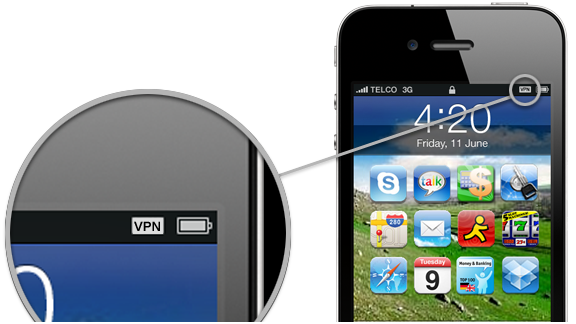
When it comes to our mobile devices we tend to take security for granted. In truth, these devices are open to the dangers of the Internet just like a computer is. This is why you should consider using a VPN when using your device on the Internet.
So, what is a VPN? A Virtual Private Network is a buffer between your connection and the rest of the Internet. When using a VPN, you are able to hide your IP address and use the Internet not only anonymously but also spoofing your location, so as not to give your geolocation away. It also allows you more security on your device too.
Now that we know what a VPN is, this is why you should use one on your mobile device:
Privacy
With your mobile device chances are you are going through many public areas and using their hotspot Internet access. Each time you do this you can be opening up your data to possible hijacking. If you use this device for work, that means that sensitive data could be passed around too. What a VPN does is to protect your connection and your data from outside interception. The fact that your data will be encrypted too also gives that added level of protection that you need.
Connectivity
A mobile VPN can act like a permanent connection to your home or work server. This is beneficial if you enjoy gaming on-the-go. The best Android VPN's connect to your Internet connection, and use that to create a more stable Internet access for your phone. This is always a plus, especially when your online activity requires that reliability.
Spoofing your Location
Through using a VPN in a different area of the world not only do you open up geolocked content, but you also can find that foreign websites open faster. If you visit plenty of foreign sites on your phone, or want to connect to faster game servers around the world then this can prove invaluable.
Flexibility of the VPN
Through the way, you connect to a VPN through your Internet connection rather than through an App, this leads to flexibility in the type of connection you can use. This includes wi-fi, 4G networks and any other connections available to you. It all works on the same protocol.
VPN isn't Used for Phone Calls
Unless you are using a service like Skype, be aware that VPN does not encrypt your phone calls. This is something that you should be aware of when using a VPN service. If you want your calls to go through VPN then be sure to use a IP voice service.
The main reason to use a VPN on your phone is of course security. In this day and age with hacking and cyber-crime seemingly rising in prominence, we have to be aware of the dangers towards our personal data. VPNs are the best way to protect yourself, along with virus scanners and malware checkers of course. Always be aware of the dangers that are out there, and take action against them, so that you can concentrate on the more important task of your mobile device (to have fun).

The short answer to that question would be a yes, but we are going to go into a lot more details and actually point out practical reasons why we should all consider using VPNs on our smartphones.
What Exactly is VPN?
VPN stands for Virtual Private Network, which provides anonymity to the user. It makes browsing from any device, be it a computer or a smartphone, safer, more liberated and private.
Smartphones are Our Main Media Consumption Devices Nowadays
The PC can still do things that the smartphone cannot and it's not going to go away any time soon. However, smartphones have mostly dethroned laptops and desktops, as far as media consumption and even gaming is considered.
When you are doing almost everything from accessing Netflix to browsing private websites best left unnamed, then your smartphone is under the same security and privacy threats, that your PC would be.
If you don't want your ISP to find out about the list of websites visited by you, and when you want to keep your location private from prying websites all around the web, a VPN is your best bet, even on a smartphone.
VPN Provides Security through Encryption
Every time you use a public Wi-Fi, your data is at risk of being intercepted by hackers. Wi-Fi signals within a college campus, in a coffee shop, or even private connections which a lot of people have access to, are not safe.
VPN provides protection to your data on unsafe networks, through end-to-end encryption. Not that even encrypted data can't be intercepted, but breaking the encryption is no joke!
Liberated Browsing
China has a very restrictive internetpolicy which doesn't even allow Google, Facebook or Netflix, but if you use a VPN, using the banned sites in China is possible!
Now, we are not saying that the local citizens should do that, because we do not know how the government monitors or punishes such violations, but it would be very, very difficult for even them to know where the user is located. If you are just visiting the country though, having a VPN is a must for your entertainment needs.
Aside from that, any website or service, which doesn't allow your region to access them, or vice-versa, will now open up to your smartphone!
Take Netflix for example, not all content is available in all regions, even though you may have a Netflix subscription. With the help of VPN, you can access any regional content on Netflix with your own account.
Which One Should You Use?
Everything we just discussed are the general benefits of using a VPN on your Android smartphone, but just like everything else, not all VPN providers offer the same quality.
Check out this list of 5 Best VPN apps for Android on ProPrivacy, to know which one would be ideal for you. They are all reliable and does the job pretty well, but depending on where you are located and what your budget is, some may appeal more to you than the others.

By now, you are probably familiar with the many advantages of using a Virtual Private Network (VPN) to reroute your internet traffic, but do you know how to actually set it up? It's not that hard really, but the steps still can be a bit confusing at first though. After you go through the guide we have for you, that should not be a problem anymore.
Step 1
Download your VPN directly from the Play Store first, because it's by far, the easiest and most natural way to get started with VPN for Android. Make sure that it's a reliable provider like Surfshark, because just like the rest of the apps on the Play Store, not every VPN application you will see is worth your attention.
Step 2
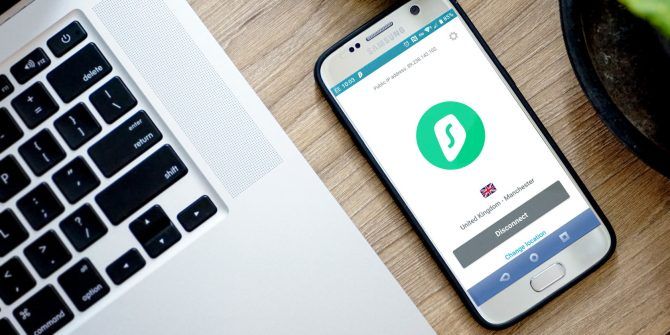
In case you are unable to access Surfshark from your Android device, or if the device isn't compatible, just download the APK file directly from the Surfshark VPN website and you are all good to go.
Step 3
Install the application via Play Store, or with the APK file and follow the onscreen instructions. The Surfshark interface is easy to use and it will guide you through the rest of the process automatically.
You will need to allow some degree of phone access to the application, mostly related to your mobile and Wi-Fi networks, but it will do the heavy lifting all on its own. That's about it really, and by the time you are done, public Wi-Fi connections will be safer, you will be able to access Netflix content from any location in the world (you will still need a paid Netflix account though!) and even your ISP will have no idea about your browsing history. In case you are somewhat interested in the dark web, you should really get a VPN!

As the Internet grows in popularity and the number of users increases every year, your privacy and safety while browsing online becomes increasingly important. VPNs (Virtual Private Networks) are becoming one of the most popular tools to assist with this. At its most simple, a VPN is used to make it appear that you're browsing from anywhere in the world. This is done by replacing the IP address that shows when you're browsing online which, when not changed, can be easily used to locate where you're browsing from and what you're looking at. Using a VPN will allow you to:
1. Encrypt your IP address, making it impossible for people, including your Internet service provider, 3rd party agencies, and any network admins to read or trace.
2. Make your browser more secure from those that may try to hack you through public WiFi networks.
3. Access websites that may be blocked by the country you're browsing from.
This is quickly becoming one of the most popular uses for a VPN. If you live in a country with restricted Internet viewing, a VPN can make it seem that you're browsing from a different country and makes it possible for you to look at otherwise blocked content. This enables you to have free access to information without being restricted, empowering people with freedom of press.
What's a VPN?
To get into a little more detail, a VPN can be split into several core components:
A VPN client: This is the piece of software you can download and use to access a VPN service through your computer or device. This is also called a VPN app.
VPN protocol: This is the process of your computer or device that has your VPN client installed, connecting to a VPN server to access its benefits.
VPN server: This is what the VPN client connects to, so that you can change your IP and have a secure and unrestricted browsing experience.
VPN service: Finally, the VPN service is the company or provider of the VPN that you can access. This company will provide you with the software and instructions to access their VPN server. This might also be called a VPN provider, similar to your Internet service provider, for example.
How does a VPN work?
A VPN uses the steps above to encrypt your Internet browsing experience. A VPN essentially adds an extra step when you're browsing online that happens instantly and in the background, so that you'd never notice. Rather than using the IP of your local server, you instead connect to the VPN server, which could be located in any country. When you then browse the Internet, you can make it look like you're browsing from the USA based on your server address when you're actually located in the UK. This makes your location anonymous, which makes it impossible for websites to collect personal information about you or to identify where you are.
If you don't use a VPN, everything you do online can be traced back to your exact location, as well as the device you're using. This is an apparent invasion of privacy and can also be used for highly direct marketing and to create a profile on who you are and what you're looking at.
VPNs also unblock content around the world. A simple and popular use for this is to watch videos on streaming services that are blocked in different countries. If you're in the UK, you may find that the content on a streaming service is limited compared to those in the USA, even though you pay the same amount each month for access, for example. China is notorious for strict walls around what information people can view to restrict the type of content or press they can see. This can be viewed as a restriction in the freedom to consume information from different points of view, and a VPN breaks down these walls and allows you to view content from different countries and perspectives.
Why should I use a VPN?
There are several main reasons that people choose to use a VPN service:
1. To protect your location and browse online anonymously
2. Encrypt your IP to stop 3rd parties like your ISP or the government from being able to see what you're viewing online.
3. Remove restrictions on what websites you can view online put in place by the country you're browsing from, or that's exclusive to a specific country.
4. Make it possible to stream, download, or torrent media.
5. Save money by changing your location when buying flights.
6. Add a layer of protection from people that try to hack others through public WiFi networks.
7. Protect personal information, including your address, passwords, photos, and card details when browsing online.
Are VPNs safe to use?
Most VPN service providers are generally safe to use, but take some time to browse the options available and read their reviews to ensure you're using a well-known and tested VPN service. There are plenty of good cheap vpn services as long as you do some research. The main VPN services to avoid are the ones that are entirely free to use. These are generally not maintained well and can have issues that might cause a threat to your privacy. One study found that over 80% of free VPN apps you can download on Android devices were found to leak data.
Are VPNs legal?
Across the west and in the developed world, VPNs are completely legal to use, and some huge companies use them every day to protect their own data. If you have a personal VPN, though, use it with care if you travel to places like the Middle East, as some countries dislike the use of VPNs that enable you to bypass the restrictions they have put in place online.
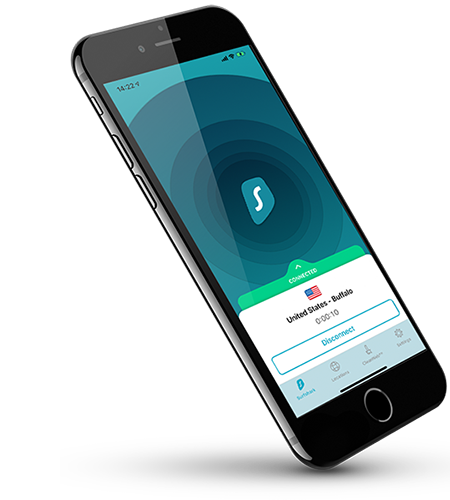
Mobile phones are no longer used simply for making phone calls and sending texts. In truth, those are probably the least two common uses for mobile phones today. Instead, people use their mobile devices to work, access social media, browse the Internet, stream video content, and more.
And as most people are always on the go, mobile phones are used everywhere. This fact makes mobile phones incredibly vulnerable, which makes it necessary to have as much protection as possible. A VPN, such as the Surfshark VPN for mobile phones, can keep you and your device protected on the go in the following ways:
Secure Your Data
A VPN provides an insulated avenue through which your online activity travels. The data will not escape this avenue, and no one can get into it. In fact, the avenue is nearly impossible to find. Should a determined hacker find the avenue, the data is encrypted so the hacker will not be able to decrypt it. Fortunately, this helps to keep your private information, bank accounts, and more secure, which is needed when out in public.
Use Secure Connection
When you use a VPN to visit a website, you are not connecting directly to the site. Instead, you are connecting to your VPN's servers that provide a safe connection to the website. This hides your browsing history from others while also masking your physical location.
Maintain Privacy
As your browsing history and information do not get collected, they are not sold to third parties or used against you in any way. What you are doing online is kept protected as well as your physical location. These features can protect you from several undesirable scenarios.
Gain Access
As a VPN does not use your actual location but instead the location of their servers, you are not bound to any location restrictions and censorship. Whether you are an activist who wants to remain anonymous, a sports fan who wishes to view content from other countries, or a Netflix user that wants to binge out on content not available in your area, a VPN can make it happen by making it appear that you are in a location where these things are allowed.
Choosing a VPN for Mobile Phones
When it's time to choose a VPN, you should not do it haphazardly. There are several options available, so you need to know what to look for.
Security
The most significant point of a VPN is to provide you with security, so of course, you want to find one that guarantees that. To do so, you need to find one that does not log its user's activities. Unfortunately, some VPNs do keep logs. This is especially true with some of the free options as selling your information is how they make their money. Read the fine print to ensure that the VPN does not keep logs.
Speed
With our mobile phones being used for work, keeping up with family, browsing the Internet, and more, waiting around for content to load is simply out of the question. Some VPNs that do not have many servers actually slow down your loading speeds. A VPN with at least 1,000 servers in several countries will provide good speeds and access to more international content.
Kill Switch
If your connection to your VPN drops, that VPN needs to sever your Internet connection immediately to prevent any chance of vulnerability. Your privacy and data could be very compromised if your VPN connection suddenly drops, and you have no idea. As you continue to use an unsecured connection, it is open season to any hackers, companies, or governments that rely on public Wi-Fi connections and mobile connections to collect your information.
Instead, you need a VPN that protects you even then. A VPN with a kill switch means that if your connection to the VPN drops, it immediately kills your connection to the Internet. When choosing a VPN, be sure that this is one of the features.
Connections
Most people or households connect to the Internet on more than one device at a time. Some might scroll through social media on their mobile phone while streaming a movie on their smart TV. Both parents and children may be using the Internet on different devices. Or you might go to the coffee shop to work on your laptop while your phone is at your side.
Regardless, it is important that you keep all of your devices protected, even when you are on more than one at a time. A VPN that provides several connections means that you can be sure all of your devices are secure. Try to pick one that allows for at least five connections, but the more, the safer you are.
Ease
There is no need for a complicated VPN. In fact, the more difficult it is to use, the less likely you are to use it. Find one that is easy to set up and easy to use.
Just because you are on the go does not mean you have to rely on public networks and risk your security. Do not leave your privacy and data up for grabs. Be sure that you protect all of your devices, especially your mobile phone as it is on the go as much as you are.

The use of VPN or proxy servers is quite common as people around the world often use it to either get access to the services of Netflix or just to watch programs that would otherwise be locked in their region. Netflix is determined to stop this in hopes of limiting its users to only the services and shows that are offered in their respective geographical locations.
Netflix offers its services across 190 nations now and although it is good news for the company and its viewers, it also makes things extremely complicated. If the media rights to certain content are owned by a company in Australia, it is probably owned by a completely different company in the UK. This is what creates a lot of problem with licensing and thus the library of content for Netflix differs with the particular country it is providing its services to.
We imagine that Netflix is under pressure from the local media companies to limit user access unless they have already paid for broadcasting rights. Netflix has assured its users officially, that over the course of time, they will be able to minimize the gaps in between global content across several countries.
If you are still interested in seeing shows that are locked in your area, then we might have good news for you. Rumor has it that the new content restriction measures taken by Netflix works by detecting the IP address of the user. Therefore, it might be possible to still watch those locked shows if you just change your IP address through VPN. How well it works is debatable though.
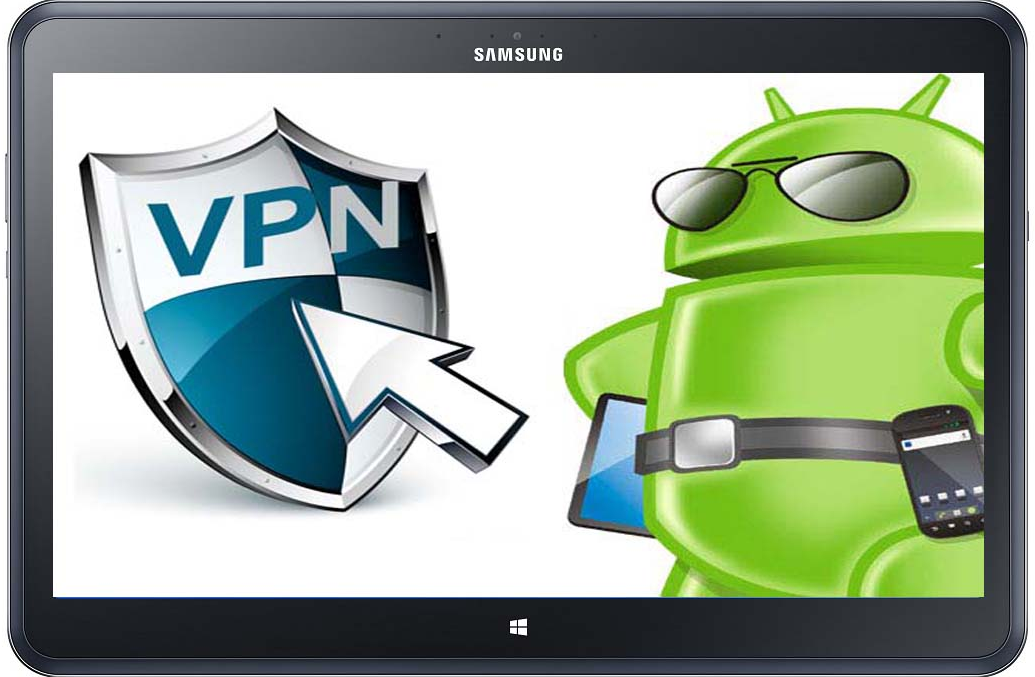
What is a VPN?
VPN stands for virtual Private Network and irrespective of the OS or the device that's using it, the primary function of a VPN remains the same; to provide anonymity to the user and hide his/her actual location. In order to achieve this, the internet activities of the user are routed through servers in different locations around the globe to generate a proxy IP address. What this means is that if you access a website while using a VPN, the site will recognize your location based on the proxy IP address, as generated by a server situated in a completely different part of the world. If you are sitting in the US, a VPN can fool the websites in recognizing you as a user from Russia or vice versa.
What Is It Good For?
Quite simply put, using a VPN to connect to the internet makes everything you do safer and more secure due to the anonymity it provides. The websites you visit, the private data you exchange with others and just about any other activity remains anonymous and no one can see where you are actually logging in from, even when it's a public Wi-Fi connection. This also removes all region-locking restrictions from a service like Netflix, giving you unlimited access to all content from regions around the globe. Although, keep in mind that Netflix is known to block certain VPN services.
Why Do You Need VPN on Your Android Device?
While the Android OS has become a lot safer from its initial days when it was launched, it still continues to be the most affected mobile platform in terms of hacker attacks. If you plan to use your Android phone on public Wi-Fi connections and would like to keep your browsing habits personal, you will need a VPN service from the best providers. Besides, all the region-unlocking advantages that comes with subscribing to a VPN holds true for Android apps as well.
What are the Disadvantages of Using a VPN on Android?
The biggest disadvantage of using a Virtual Private Network on any platform is that your internet speed will slow down a bit. This is an unavoidable side-effect of the encryption and rerouting process for which the service is used in the first place. Unfortunately, in China, North Korea, Vietnam, Myanmar, Eritrea, Ethiopia, Iran, Saudi Arabia, Syria and Tunisia, it's illegal to use a VPN due to the authoritative structure of the laws that govern these nations.
Even free VPN services do provide a bit of privacy protection but their services are neither long term, nor reliable enough. We recommend using a paid service, especially if you take your privacy seriously enough.
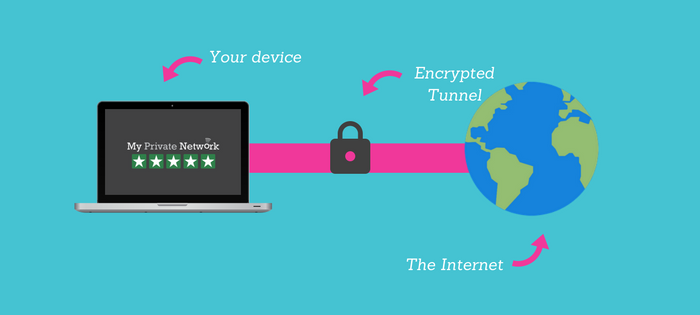
A Virtual Private Network or VPN is typically a service to hide the original IP address of the user from hackers, trackers and everyone else, including the ISP itself. It makes for a more secure and private browsing experience that cannot be traced back to the user. Taking a closer look at the reasons why everyone should start using a VPN is often an eye-opener, so here are four of them everyone should know.
Privacy
As mentioned earlier, a virtual private network protects the user from being traced by anybody on the Internet, as it hides the original IP address of the user. This means that no one, including your internet service provider, can possibly see your browsing history, as you will essentially become untraceable and invisible to everyone on the Internet.
Unrestricted Use
Geoblocking is a concept that allows websites and search engines to filter content, based on a user's geographical location. This is the reason why you can't watch certain Netflix US shows from most of the Asian countries, as Netflix filters out some of the content based on the region. Google will do the same to your search result pages, so you will never be able to see unrestricted results.
If you want to access blocked sites, shows and SERPs, VPN Service by VeePN will let you do exactly that. As you will be able to set your IP address to any location in the world, it will essentially open up your computer to every site, search engine result page, and streaming service in the whole world.
Use Public Wi-Fi Safely
You probably already know that it isn't safe to use public Wi-Fi in a café, or anywhere else for that matter. But did you know that a VPN can actually protect you against hacking attacks, a common threat for public Wi-Fi users? Well, it can really do that, so if you love using Wi-Fi in your favorite café, you really need to start using a VPN!
Download Torrents Anonymously
Do we recommend downloading pirated material with a P2P torrent client? Absolutely not! Can you protect your identity with the help of a VPN if you do download torrents? You certainly can.
While a VPN is rapidly becoming a necessity because of its wide implementation possibilities, there are a few things that even the best VPNs can't help you with, and they should be noted as well.
• They are not antivirus replacements, and you will need a good antivirus to protect your computer on the Internet
• You will still have to pay for Netflix, Prime Video and other streaming services to access the content
• A VPN service provider will mask your IP, but you will still need your ISP for the Internet connection
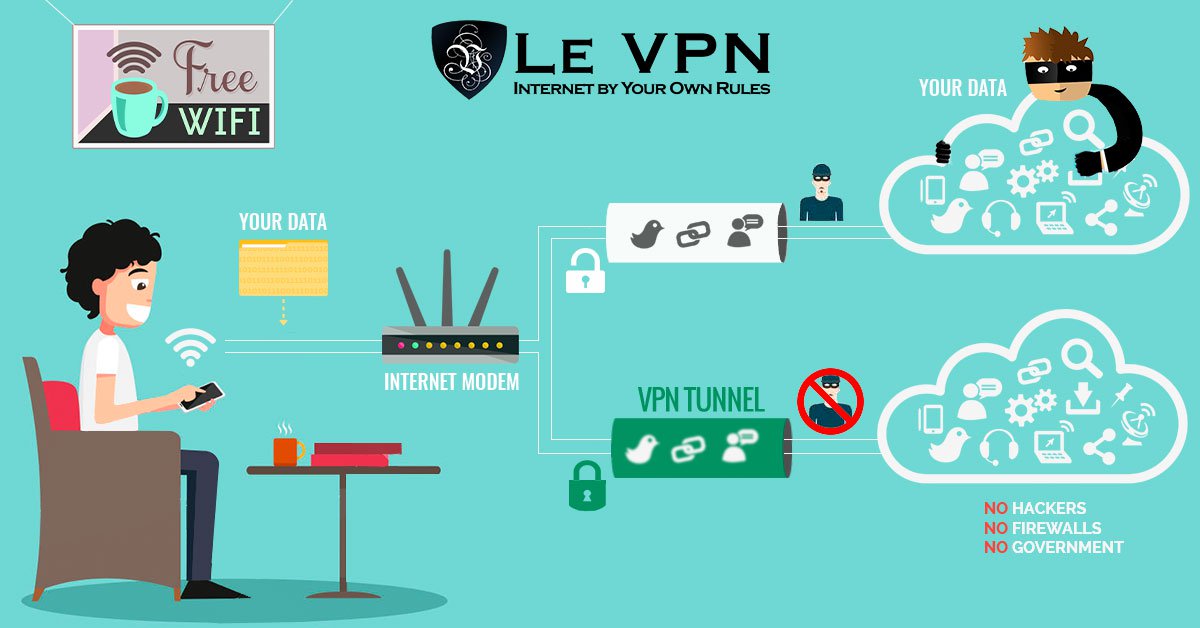
These days, there are so many different VPN choices on the market. More and more people are turning to the privacy and security that Virtual Private Networks or VPNs offer, but how exactly do you choose one from another? The best VPN for you depends on your needs. Are you trying to get around content restrictions based on location? Are you looking to trade cryptocurrency? The best way to figure it out is going through some VPN comparisons (for example this one) and seeing which services offer the best overall features. From here, you'll be able to narrow it down to exactly what you need. When selecting a VPN provider, make sure they tick all these boxes.
1) Speed, Speed, Speed
Even if you are casual internet user and you mainly just use social media, stream content, exchange emails, and so on, you don't want to give up too much on speed. Nowadays, no matter what website you go to, it's likely going to be content-heavy with a lot of images, videos, and graphics, and there's nothing more frustrating than having to wait for everything to load.
When going through your VPN comparisons, do a speed test. The best way to do this is to run a speed test without the VPN turned on, then after. If you see more than a 10% decrease in network speeds, then go with a different option.
2) Where Do You Need Secure Access?
These days, more and more privacy experts advocate using a VPN for all your online activity. This is because even major websites get hacked and fall victim to malware, phishing attacks, worms and other problems that may get transferred over to your computer and mobile device.
For this reason, you want a VPN that provides flexible service across devices. This means that it allows you to protect your home computer while also being compatible with your router, so all your home internet activity is safe. Likewise, the VPN should cover you while you on your smartphone or accessing a public network at somewhere like a cafe or hotel.
3) Does It Offer Multiple Server Locations?
A huge percentage of online content is geo-restricted. Even YouTube offers significantly different content depending on what country you are located in. This is doubly true for paid streaming services like Netflix or Hulu, which may be completely unavailable in certain countries. For this reason, you want to be sure the VPN offers you a choice of multiple server locations- at least ten. This will allow you to access the content you want no matter where you are.
4) Do They Keep Logs?
These days, VPN services that follow a "no logs" policy have exploded in popularity. Most people utilize VPNs so their data and IP address can be kept private. However, some providers keep logs of their users' activity. This can be problematic for two reasons. If the VPN server is hacked, then your IP address and personal data can become vulnerable.
Secondly, you lose all anonymity because there will be an exact browsing history of your activity. If privacy is your ultimate concern then make sure "no logs" is one of the top features. This is another time when VPN comparisons are essential because many providers claim to follow this policy, but actually don't.
5) What Security Features Do They Provide?
This is where the technical jargon may get a bit overwhelming for people new to VPNs, but you don't have to know everything. Just be on the lookout for a few key phrases. The best VPNs offer a higher level of encryption to ensure your data is truly protected. One of the highest standards is the "AES-256" protocol. If a service provides this, that's a good sign.
Another important feature is a "kill switch." A kill switch shuts down your internet connection should there be some failure with the VPN. For example, if your connection is dropped or if there is some glitch in the system, it temporarily shutdowns internet access. This is essential because otherwise, you'd be using the internet unprotected and all of your data would be visible to your ISP, hackers, and other potential threats.
BONUS: Do They Have Bandwidth Restrictions?
Even if a VPN offers fast service, they may have bandwidth restrictions to prevent certain activities such as torrenting. Some services may claim they offer unlimited bandwidth, but if you read the fine print, it may be limited to a certain amount of gigabytes or terabytes per month. For any paid VPN service, you should have unlimited bandwidth, so be sure to check for that when making VPN comparisons.
The Bottom Line: How to Find the Right VPN for You
When searching for the right VPN, the main things you need to focus on are speed, security, anonymity, and bandwidth. Each VPN you look at should be competitive in all of these categories. After this, the final factor is the price. More expensive isn't necessarily better. There are great VPN services for between $4-10 per month. You can even get discounts if you sign up for annual or longer plans and get an even better deal. So get out there and start making some VPN comparisons to find the perfect one for you!
© 2023 YouMobile Inc. All rights reserved





